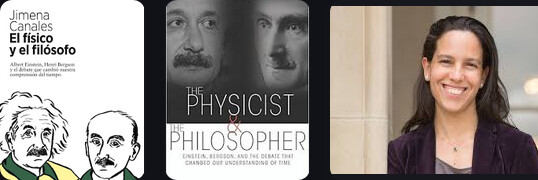My answer revealed that ‘the why he is so great’ might have originated from a ‘minor intellectual contribution’ that enabled William James to get out of a major philosophical impasse that hindered his own philosophy. Further, I explained that my first impression was that he was ‘losing on purpose’ in the defense of concepts such as free will.
That argument does not appear to be applicable.
I cited the Einstein-Bergson debate in this topic, of which professor of history Jimena Canales wrote:
The “dialogue between the greatest philosopher and the greatest physicist of the 20th century” was dutifully written down. It was a script fit for the theater. The meeting, and the words they uttered, would be discussed for the rest of the century.
In the years that followed the debate, … the scientist’s views on time came to dominate. … For many, the philosopher’s defeat represented a victory of “rationality” against “intuition”. … Thus began “the story of the setback for philosophy”, … then began the period when the relevance of philosophy declined in the face of the rising influence of science.
So Bergson being ‘the greatest philosopher of all time’ is relative to this debate, that would cause ‘the great setback for philosophy’ and the rise of scientism.
- I personally had the impression, upon reading Bergson unbiased (actually with the assumption that he might provide strong logic), that he was ‘losing on purpose’
- A critical investigation of the Einstein-Bergson reveals that Bergson might have lost that debate on purpose
Einstein’s private notes revealed that Bergson ‘fully and correctly’ understood his theory of relativity. In public however, Einstein’s primary argument was that Bergson didn’t understand his theory, and Einstein would win the debate on that simple ground.
I wrote:
Einstein’s Contradiction
How can this have been an accident? Did Bergson fail to understand the theory of relativity? Even his students would leave Bergson for this failure, revealing the profound nature of his apparent ‘failure of intellect’ that would cause ‘the great setback for philosophy’.
I bumped this topic for the following:
The cited professor of history Jimena Canales who is specialized in the Einstein-Bergson debate, might be considered a female philosopher, which might be of interest as well for a part of the ongoing discussion. She is also specialized in the history of Einstein and is author of the book “Simply Einstein”.
Her website: https://www.jimenacanales.org/
